 Anderson removing a hive from a fence. Photo from the Backwards Beekeepers.
Anderson removing a hive from a fence. Photo from the Backwards Beekeepers.Urban beekeeper Kirk Anderson has a vision: bees, kept without the use of chemicals, in backyards all over Los Angeles. Homegrown Evolution was lucky to be able to attend a beekeeping class taught by the very knowledgeable and entertaining Anderson, who has a theory:
“There has been a lot of news stories about the bees dying. They became infested with a parasitic mite in the 80’s. Many Bees died. The solution for these mites has been various chemicals and medicines. These chemicals and medicines have produced a resistant mite and a weak bee and also contaminated the bees wax and the hives.
After getting into beekeeping again I read that all the Feral or wild bees were dead or dying off because of the mite. While living in Los Angeles and being a house painter I noticed this was untrue. The wild bees in Los Angeles are flourishing. I have not purchased bees for four years now but catch wild bees here in Los Angeles. This makes a good supply of healthy bees that have not been treated with chemicals. Healthy bees. I realized that the mites are in the environment now they aren’t going away. You need bees that can live with mites — survive with the mites.”
For more information on keeping bees in Los Angeles, see Anderson’s website, kirksurbanbees.com. Anderson will also capture swarms and give them a new home.
To attend a meeting/class see the blog of the Backwards Beekeepers, (backwards in the sense of going back to a chemical free style of beekeeping). Even if you aren’t in Los Angeles, the Backwards Beekeepers site has a lot of nice tips and information. And what an amazing group people! In the midst of our challenging economic times, it’s groups like this, forming around a sense of group cooperation and problems solving that are going to really shift the paradigm in the coming years. Let’s hope that Backwards Beekeeping groups will form all over the world.
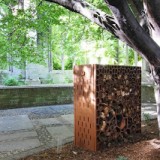
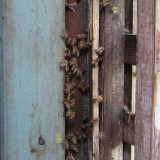
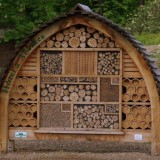
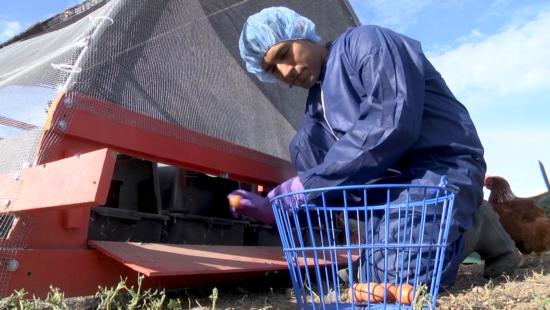
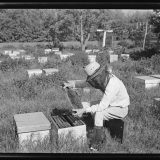
I wonder if he can ship those bees to those of us on the east coasts starting urban hives.
Actually, one of the central ideas of backwards beekeeping is to use local bee populations, because they’ve adapted to survive in your area.
So the trick is to find someone in your community who knows how to capture swarms…or learn to do it yourself!
I’d love to have a hive, but my hubby is allergic. If I were ever able to have them, I don’t think that I would be brave enough to capture a swarm myself!
A timely post on Ethicurian goes into the benefits and phenomenon of wild bees http://www.ethicurean.com/2009/02/09/buzzkill-can-native-bees-do-the-job/
I’m curious and concerned about a cluster (swarm?) of bees hanging out in a California Ficus tree in our backyard. For the last four days bees have been dropping and slowing dying on our driveway. We’ve seen these clusters come and go in our West L.A. neighborhood, but never this number of dying bees. Any thoughts or advice?